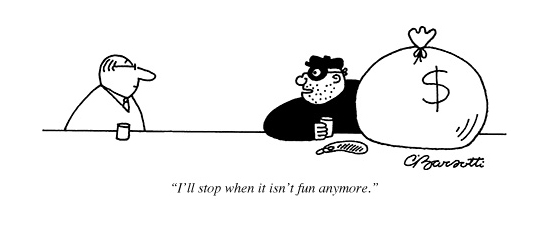
Here's my summary of the key news overnight to keep you up-to-date over these holidays.
In Australia, banking regulator APRA has sprung something of a pre-Christmas surprise on the four pillar banks. They are to be the only ones defined as domestic systemically important banks - D-SIB. Banks like Macquarie, Suncorp, and Bank of Queensland have 'escaped' the designation. This is important because D-SIBs will now be required to hold a lot more capital, so much more that the dividend river that has been flowing from these banks is likely to slow, and affect their share price.
The capital shortfalls involved are big, and one analyst has estimated they could range from NZ$0.5 billion for Westpac up to over NZ$2 bln for Commonwealth Bank.
On this side of the ditch, stronger parent companies will be approved of by the RBNZ, but unless we also follow APRAs lead, the parent holding companies may react by requiring higher returns from their offshore subsidiaries.
Still, markets were prepared for tougher rules from APRA and yesterday share prices actually rose for those four big banks.

In China, the weekend effort to reassure markets about the seasonal liquidity crunch have not really worked. Borrowing costs in China's money market started soaring again, as the central bank's recent fund injection failed to appease jittery investors amid a surge in demand for cash by banks. China flirts with real danger each time this happens. It's this sort of instability that can affect our money markets.
International credit spreads have fallen to a six year low as corporate risk is reassessed by markets. These declines are actually quite impressive. However, it is not sure whether going back to 2007 levels is back to 'normal' levels, or whether this signals a repeat of the easy credit problems that led to the last credit crisis. Whatever the reason, corporate borrowers (and our banks) are paying a smaller premium for their wholesale funds.
American consumer spending rose more than expected, indicating Q4 GDP growth will likely be pretty good and bouncing back from a lackluster October.
Across the ditch, Australian retailers are feeling better too. They have been buoyed by high levels of foot traffic and the solid take-up of new service offerings, including personal shopping in the lead-up to Christmas, but opinions are mixed on whether results from the 2013 holiday season will be brighter than last year.
And here at home, Paymark figures reveal another solid week of Christmas shopping, with spending through the Paymark network up 6.9% year-on-year for the first three weeks of December.

Gold has slipped below US$1,200/oz again. Oil is stronger, especially the US benchmark which is adjusting closer to other benchmarks as American exports become important flows, and the Dow is at another all-time high.
The NZ dollar starts today virtually unchanged at 82.1 USc, 91.9 AUc, and the TWI is at 77.5.
The easiest place to stay up with today's event risk is by following our Economic Calendar here »
Merry Christmas everyone. Enjoy your holiday break.

No chart with that title exists.
9 Comments
Merry Christmas and best wishes to one and all.
To all here, have a merry Xmas and a happy & prosperous New Year.
2014 will be fun.
APA referencing?
Couldn't agree more, Hugh. The mainstream seems to be forever bubble blind, and China now is like Japan in the 1980's, when one block of land in Tokyo was "worth more than the State of California" - and no-one in the mainstream saw anything wrong with this.
Just looking at it from a finance perspective while missing the major issues entirely …
China cash crunch symbolises central bank policy quandary - FT.com
Interest rates are increasing … bubble party over…
http://www.businessinsider.com.au/patrick-chovanec-on-the-spike-in-chinese-interbank-rates-2013-12
We don’t know of course how much money is being shipped out of China at a furious rate at the moment.
Hugh has been emailing out further stuff. Incredible how a minimally-educated ex-woolclasser property developer can see all this so clearly when so many "X - spurts" can't.
Hugh says:
"Research China … draw your own conclusions …
The big question with respect to China is quantifying the bubble value of its residential stock and also its wider mal-investment.
As the Demographia Surveys illustrate, housing should not exceed 3.0 times annual household incomes.
While the usual Asian high-density housing costs considerably more to develop / construct on a square metre basis, these Units are much smaller than conventional detached housing in the West. So they should operate below the 3.0 Multiple ceiling as well.
Elevated Median Multiples above 3.0, are simply a sure sign of dysfunctional local governance … where land supply and infrastructure financing issues need to be addressed with urgency.
Apartments / condos are less expensive for example in normal housing markets such as Houston … as the Houston Association of Realtors Monthly Reports illustrate .
Or do your own RE site search and wake up to the great Kiwi rip-off:
Another useful measure is the relationship between total residential stock and Gross Domestic / State / Metropolitan Product. At “tops” this should not exceed 1.5 and ideally 1.2 times. The US for example is about 1.1 overall … as is Houston.
James Gruber touched on this within a Forbes article a little while ago … illustrating the UK, Australia and New Zealand are extremely vulnerable …
3 Warning Signs Of A Potential Bloodbath Ahead ... James Gruber ... Forbes
I have illustrated the critical importance of simple measures in much earlier articles … going back years. The political and commercial elites, with their incompetent paid parrot consultants of course, scoff at this approach.
They will be held to account in due course.
Clear and honest information doesn’t suit their self-interests (at least in the short / medium term) …
Report: housing affordability out of sync with incomes
Housing Bubbles & Market Sense
The Chinese Central Authorities are endeavouring to collate robust residential stock data, as noted within the posting above. They are however encountering significant resistance from local Authorities (we shouldn’t be surprised by this ! ).
Gradually however, as the important Xinhua (Chinese Government News Agency) article posted above illustrates, the Chinese authorities are generating improving data.
Housing bubbles are both unnecessary and lethal.
It is not only the “bubble housing value” that is wiped out … but also the collateral damage as well. Researchers and reporters interested in these issues, need to check out the US Fed Reserves Flow of Funds Account, to ascertain how much total housing wealth was wiped out with the much smaller 2007 event.
As Hoover Institution Fellow, eminent economist Dr Thomas Sowell made clear in this interview (associated with his book launch), the 2007 US event occurred only in some US markets (the Demographia Surveys illustrate this as well) …
Thomas Sowell on the Housing Boom and Bust - YouTube
The United States economy (unlike most others) with its great strengths of diversity (basket case California at one end of the spectrum … normal and dynamic Texas at the other) and dynamism, has “bounced back” as a recent Barron’s report illustrates …
The mainstream seems to be forever bubble blind..
But why the surprise Mr Best?
The fact of this is built into the very meaning of the term. Were the majority free from greed and blindness the phenomenon we call bubbles could never arise in the way they do.
merry xmas everyone.
regards
Have a good one, everyone.
China! China! China!
China to keep controls on property market in 2014: ministerhttp://www.reuters.com/article/2013/12/24/us-china-property-idUSBRE9BN08V20131224
China eases immediate cash crunch but policy still tightening
Think tank forecasts turning point in home prices
http://www.ecns.cn/business/2013/12-24/93987.shtml
Terrific article on Ireland, post-house-price crash - is this NZ in a few years?
http://rt.com/news/mortgage-overdue-ireland-crisis-770/
"......With one in five mortgage payments being overdue in Ireland and families across the country having their homes repossessed, some of the debtors are hoping for bankruptcy to do away with their endless fear of losing their properties.......Homeless organization, Focus Ireland, estimates that 16 families are losing their homes each month in the capital.
Finding oneself out in the streets is particularly bitter as Ireland is officially recovering......."
And a couple more items on China:
The bubble resulting in layer upon layer of "innovative finance" being added, just like "mortgage securitisation" and Fannie and Freddie but with different names and faces:
… note what Anne Stevenson Yang had to say about developer debt financing arrangements mid-year … “sucking the air out of the Chinese economy”. Very astute description.

We welcome your comments below. If you are not already registered, please register to comment
Remember we welcome robust, respectful and insightful debate. We don't welcome abusive or defamatory comments and will de-register those repeatedly making such comments. Our current comment policy is here.